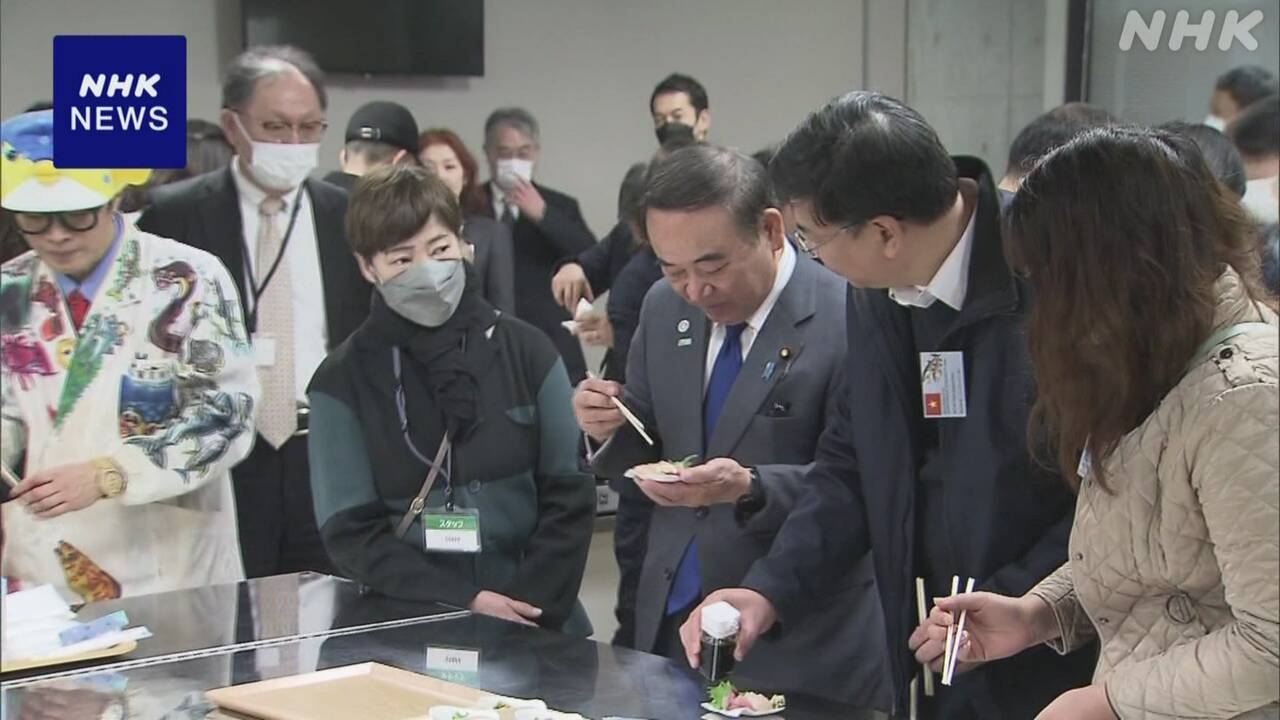Almost half a year has passed since the release of treated water from TEPCO's Fukushima Daiichi Nuclear Power Plant, and Minister of Agriculture, Forestry and Fisheries Sakamoto invited embassy officials from Southeast Asian countries to Tokyo's Toyosu Market to sell scallops, whose imports continue to be suspended by China. We promoted marine products such as
Early on the morning of the 19th, Minister of Agriculture, Forestry and Fisheries Sakamoto invited approximately 20 people, including the ambassadors and wives of ambassadors to Japan from six Southeast Asian countries, including Vietnam, Thailand, and Singapore, to the Toyosu Market in Koto Ward, Tokyo.
The ambassadors first toured the tuna auction and the sales floor of an intermediary wholesaler, and then received an explanation from Sakana-kun, an honorary doctor of Tokyo University of Marine Science and Technology, about delicious ways to eat Japanese scallops and sea cucumbers.
They also sampled Hokkaido scallops that were shelled right in front of their eyes, and yellowtail sashimi caught in Hokuriku.
Regarding Japanese marine products, exports to China have continued to decline since China completely suspended imports last August in response to the release of treated water accumulated at the Fukushima Daiichi nuclear power plant.
The Ministry of Agriculture, Forestry and Fisheries hopes that by promoting Japanese marine products to ambassadors to Japan from Southeast Asian countries where many Japanese restaurants are located, they will be able to secure an alternative sales channel to China, which was the largest export destination. Masu.
Minister Sakamoto said, ``All the ambassadors unanimously said that it was delicious.We would like to link this to exports to Southeast Asia and the diversification of exporting countries.''

